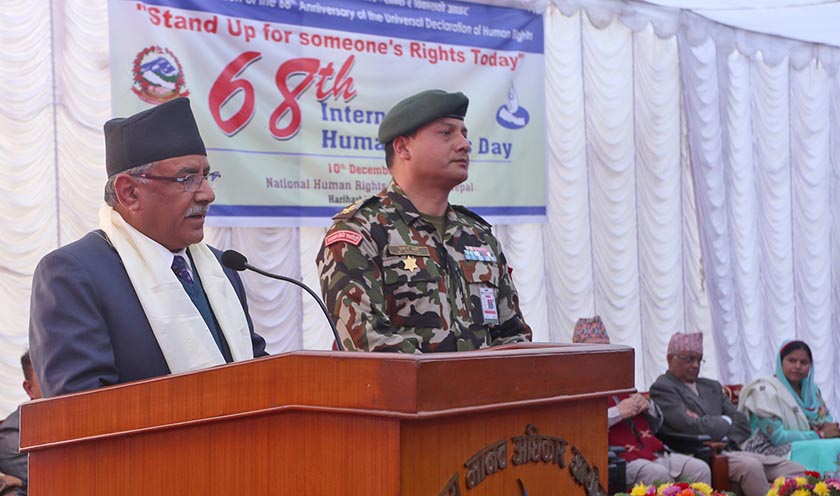State apathetic towards rights violation cases, says NHRC
- The government has largely ignored recommendations involving legal prosecution for rights violation
Kathmandu, December 10
The National Human Rights Commission has concluded that the state is unresponsive to rights violation cases and this has impacted conflict victims, disaster victims, and victims of other socio-economic factors.
Talking to The Himalayan Times, NHRC member and Spokesperson Mohna Ansari said the government was somewhat responding to reparation appeals and recommendations made by the NHRC, while other recommendations regarding legal prosecution were ignored or simply dumped.
The national human rights watchdog provides two types of recommendations — providing reparations and taking legal action — in cases of rights violation. She also said the government didn’t respond to the recommendation to provide food to the drought-hit Karnali region and to supply water to many quake-affected districts.
“In a recent case wherein a child died while standing to welcome the prime minister in Surkhet, police simply refused to register a First Information Report,” Ansari told THT on the occasion of the 68th International Human Rights Day. “It’s an insult to the NHRC as well as a crime against the child.”
A 13-year-old girl died recently in Surkhet when she was waiting in line to welcome Prime Minister Pushpa Kamal Dahal, who had visited the district to inaugurate a business fair.
According to Ansari, the state apparatus has been indifferent towards scores of NHRC’s recommendations in cases related to violence against women, relief for conflict and disaster victims and providing basic food and health services.
Quake victims have received the first instalment for constructing their homes, but in many districts this is only on paper. Thousands of genuine victims are yet to receive relief,” she noted.
At a public function organised by NHRC to commemorate International Human Rights Day at its office in Pulchowk, NHRC Chair Anup Raj Sharma appealed to the government to be more ‘sensitive’ and address the woes of victims of the April 2015 earthquake.
On the occasion, he said the NHRC was hopeful that the issues of dissenting voices in relation to the constitution would be addressed through political initiatives. He also appealed to all political stakeholders to refrain from engaging in a ‘tug of war’ on the issue of the constitution.
Meanwhile, Prime Minister Pushpa Kamal Dahal, while addressing the NHRC function, said the government was committed to amending the constitution to make it acceptable to all as a common charter for nation building.
“We all should understand that the issue of constitution amendment is also a part of the process of implementing the constitution,” the PM said.
The prime minister admitted the government had failed to disburse the dividends of democracy to all sections of society.
The prime minister said that as per the constitutional provision, the government had already registered bills relating to establishment of various constitutional commissions, including Madhesi Commission, Tharu Commission, Muslim Commission, National Women Commission and National Dalit Commission. “Once these bills are enacted, they will help augment the protection of human rights,” he added.
UN Country Representative Valerie Julliand said human rights shouldn’t be talked about only on the 10th of December, but everyday, every time and by everybody.
Meanwhile, dubbing the country’s human rights situation ‘pathetic’, advocate Jagadish Dahal told THT that human rights should be reflected in the behaviour of the state, not in its constitution, laws and regulations only.






